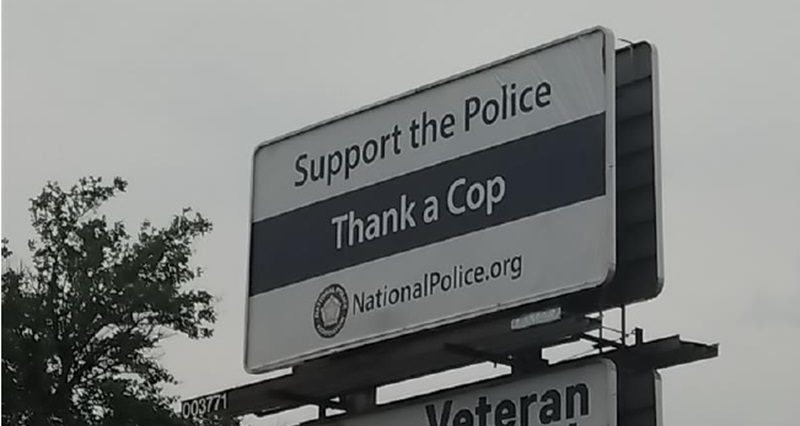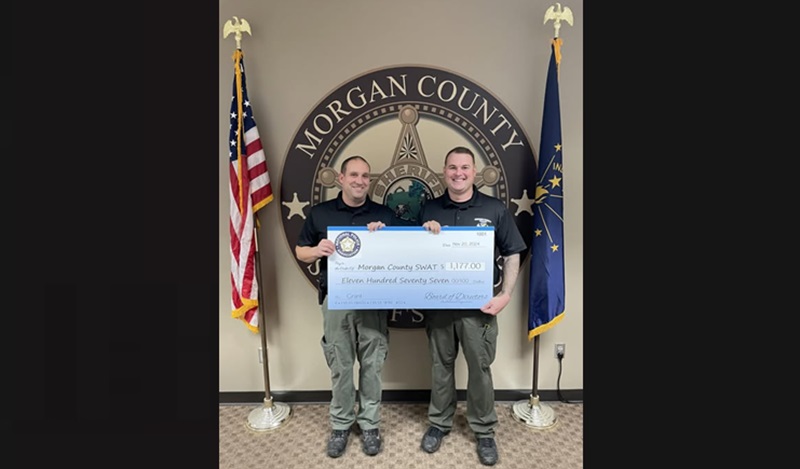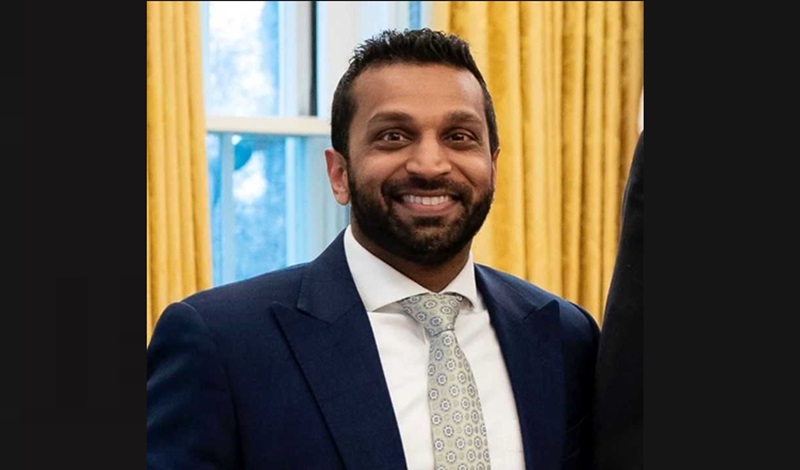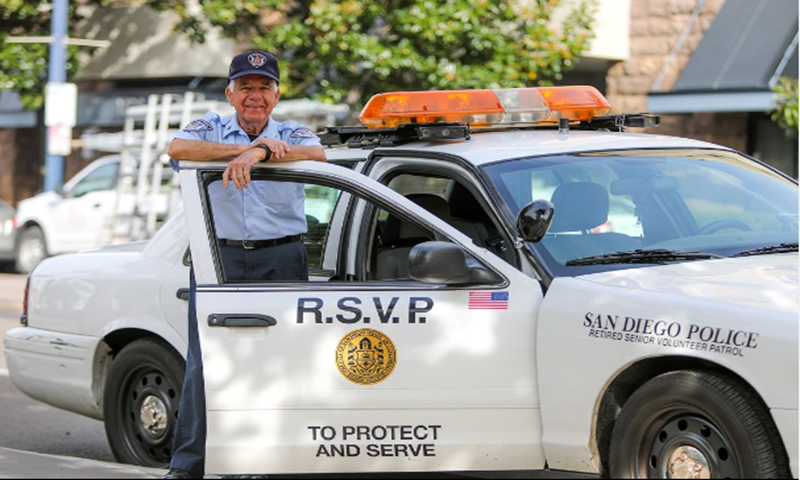
With the unfortunate depletion of sworn law enforcement officers stemming from the ludicrous defund-the-police noise and demoralization of cops —compliments of contrarians and their criminal pacification— an all-hands-on-deck initiative is necessary among America’s police organizations. Enter San Diego PD’s R.S.V.P. program, incorporating senior-age citizens as civilian volunteers on patrol.
R.S.V.P.
Similar to other law enforcement agencies implementing internship-like assistance provided by citizens dedicated to community service under the moniker Volunteers in Policing (VIPs), the San Diego police administration has a program referred to as Retired Senior Volunteer Patrol (R.S.V.P.), the members of which dedicate their time to serve as eyes and ears, reporting observations and, where applicable (not necessitating a sworn/armed officer), mitigating residents’/merchants’ traffic woes and light-fare issues.
Per an August 2023 bulletin posted by our brothers and sisters at the San Diego Police Department, the agency is seeking help from its retired demographic, delineating basic stipulations to join the force:
“You must be at least 50 years old, interested in working with law enforcement officers, motivated, and ready to make an impact in the community!
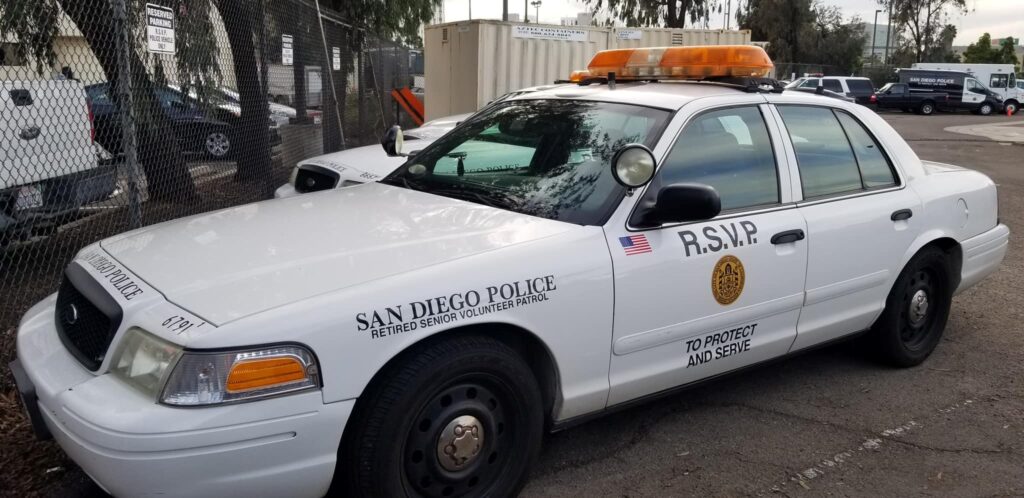
(Photo courtesy of the San Diego Police Department.)
“The RSVPs promote community awareness, perform vacation home checks, and help check on the elderly in our communities through the ‘You Are Not Alone’ program (YANA). All applicants will attend a two-week training academy upon completing the hiring process, including a background check.”
To anyone anywhere who steps forward and assumes such a crucial role in contemporary society, total R.E.S.P.E.C.T. is automatically earned.
Dispensing with the acronyms, let’s dive into this police/community concept a bit more…
My department incorporated a VIP program back in the day. Our Volunteers In Policing personnel, ordinarily made up of retirees seeking to “stay busy” by “giving back to the community” chose to do so by joining the police department.
Many of our VIPs opted for roles outdoors, as school crossing guards, in uniforms, responsible for safely guiding children to any of the jurisdiction’s schools.
Similarly, other VIPs took it to the streets as “citizens on patrol” (COP), driving in department-owned vehicles topped with amber light bars and graphics on the auto’s side spelling out “Citizens On Patrol.” Primarily, they drove around and reported anything suspicious to public safety dispatchers who would then send a sworn officer to investigate further.
One of the other ways retirees served in our agency was in the Records Division. Given the chronic nature of police work generating gobs of information, traditionally in hardcopy form, such as paper reports and tickets and charging documents and all manner of supplemental info supporting a police officer or detective’s investigation(s). When the electronic age elbowed the paper method, databases were incorporated, requiring extra hands to process police information flows via keyboard tapping.
When citizens showed up at the police department Records Division requesting copies of police reports, databases were accessed by volunteers, hardcopies were printed out, and a compensated unit supervisor or manager would facilitate the transaction.
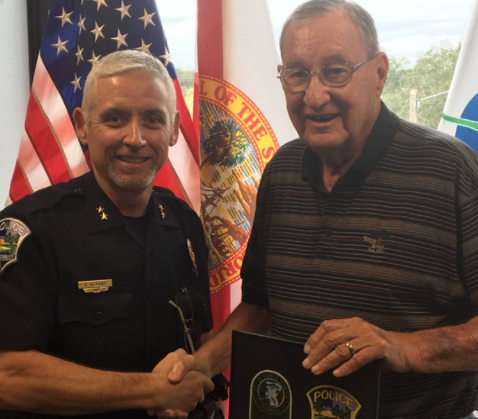
(Photo courtesy of the Temple Terrace Police Department.)
“A Fond Farewell: The Temple Terrace Police Department held a going away get-together [in 2016] for our longest-serving volunteer. William ‘Mr. Bill’ Ryan served as a volunteer with the department for over twenty years providing invaluable assistance in our records section. We cannot thank him enough for his unwavering dedication.”
When our agency sought accreditation from both the Commission for Florida Law Enforcement Accreditation (state-level) and the Commission on Accreditation for Law Enforcement Agencies (national-level), either one engendering a cumbersome and time-consuming process, it was our VIPs who spent time and lent hands to move the ball downfield and score the points we sought: professionalizing policing by advancing in service areas deemed optimally suited to fill public safety goals successfully.
Naturally, any array of police volunteers undergoes a background investigation like any law enforcement employee. The sensitive (confidentiality) information involved, and the representation of the department, are crucial considerations, thus assurances that the best people for the job (volunteer or otherwise) are selected after diligent vetting.
One can conceive that the agency cost to conduct a background check on any prospective volunteer candidate outweighs the savings afforded by such a selfless individual graciously supporting the law enforcement mission. In turn, the agency administration has a responsibility to every volunteer: A symbiosis of sorts…
Culled from the pages of Police Chief magazine, “The basics that apply to hiring paid personnel also apply to the use of volunteers. They must be recruited, properly screened, and sufficiently trained to perform their assigned duties. They must also be introduced to and taught the goals, policies, procedures, rules, and regulations of the organization. In addition, volunteers need to be treated like regular employees in many ways.
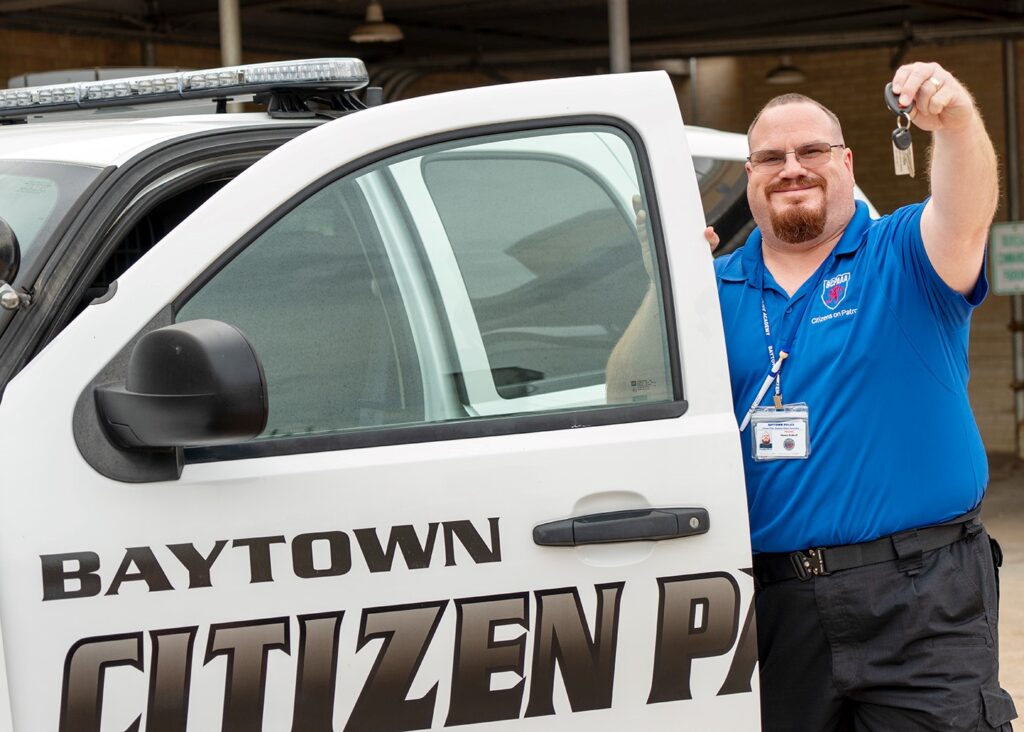
(Photo courtesy of the Baytown Police Department.)
“They need to receive recognition when they perform good work.” Conversely, “They need to receive discipline when they do not follow the rules of the organization. They need to be assigned to work they can perform” and “they also must be assigned to meaningful work” so that they satisfactorily meet or exceed the threshold “performance and behavioral standards as paid employees.”
After successful recruitment, background checks, and offers to sign on, volunteers in policing ordinarily attend the agency’s Citizen’s Police Academy (usually several days of exposure to the department’s overall infrastructure and its personnel performing various police operational functions). Assignments are meted out thereafter.
In many divisions of a law enforcement agency, you will likely find these VIPs and RSVPs doing imperative tasks toward effective public safety operations on behalf of constituents (taxpayers). An encompassing acronym for these special, selfless folks is CIA: Citizens In Action. It is no secret that they are serving from the goodness of their heart…for which we remain grateful.




